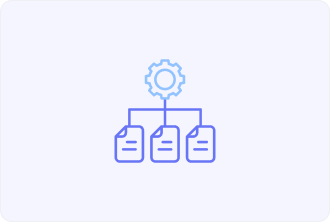Framework Definition

The term “framework” is thrown very often when reading about software development, but what does it really mean? A framework, in simple terms, means a base structure from which a developer can start building applications efficiently. A framework predefines a way of arranging and managing code; it provides tools, libraries, and good practices that offer more convenience to development.
Sometimes, the developer using a framework will be able to clone much—but focus on writing the uniquely new parts of their application—rather than reinventing everything with every new project.
Framework Usage

Framework usage is integral to modern software development, and it serves as a shortcut for developers by providing a skeleton upon which they can build their applications. This approach saves time and reduces errors, as frameworks often come with pre-built components that handle common tasks like database connections, user authentication, and routing.
For instance, in the domain of web development, frameworks such as Django in Python, Laravel in PHP, and Ruby on Rails in Ruby provide a robust base wherein the routine and repetitive work are taken care of, thereby allowing the developer to work on features that make their application stand out. In front-end development, it provides structures like Angular, React, and Vue.js, which come with ready-to-use components and structures for the creation of dynamic user interfaces.
Frameworks also enforce consistency within a development team. When everybody is working in the same framework, the codebase becomes more uniform, easier to read, and simpler to maintain. This is especially important in large-scale projects where there are multiple developers because code incoherency is one of the reasons for stalling work quality.
Framework in Development
Frameworks are more than just tools in development; they are also ways of thinking and doing development. Generally, the tools inherently bring along or may be a type of philosophy or pattern endowed from the creators, which directs the developer in a particular way of problem-solving.
For instance, the Model-View-Controller (MVC) pattern, which can be said to be associated with most web frameworks, encourages the separation of concerns in such a way that the ultimate result in the code is clean and highly maintainable.
Developing frameworks not only ensure the quality of code but is also a handy approach to rapid prototyping and scalability in development. That is because with a framework, the developers can easily set up the skeleton of the application and polish the features or functionalities afterward. When an application grows, the framework which can handle that growth will provide the tools, whether in performance optimization, increased traffic, or additional features.
Besides, frameworks tend to hold large, strongly integrated, and active communities in which extensions, plug-ins, and documentation are contributed. All this really represents a huge plus for developers: solutions to common problems, thoughts from the community, and extra functionalities easily integrated without starting from scratch.
Conclusion
The simplest way to put it is that frameworks are the basement on which modern software development stands. They provide a structured base upon which applications can be developed with much greater efficiency, uniformity, and fewer errors. By using frameworks, a developer is allowed to focus on the creative and unique parts of his work while having a reliable structure to fall back on for the more routine tasks.
Be it in web development, creation of mobile applications, or any other domain of software engineering, a framework can really help in improving productivity and the quality of your code. It’s not saving time; it’s about building better software. In an evolving tech world, frameworks offer stability and support as one innovates at breakneck speeds, making them very necessary tools in any developer’s toolkit.